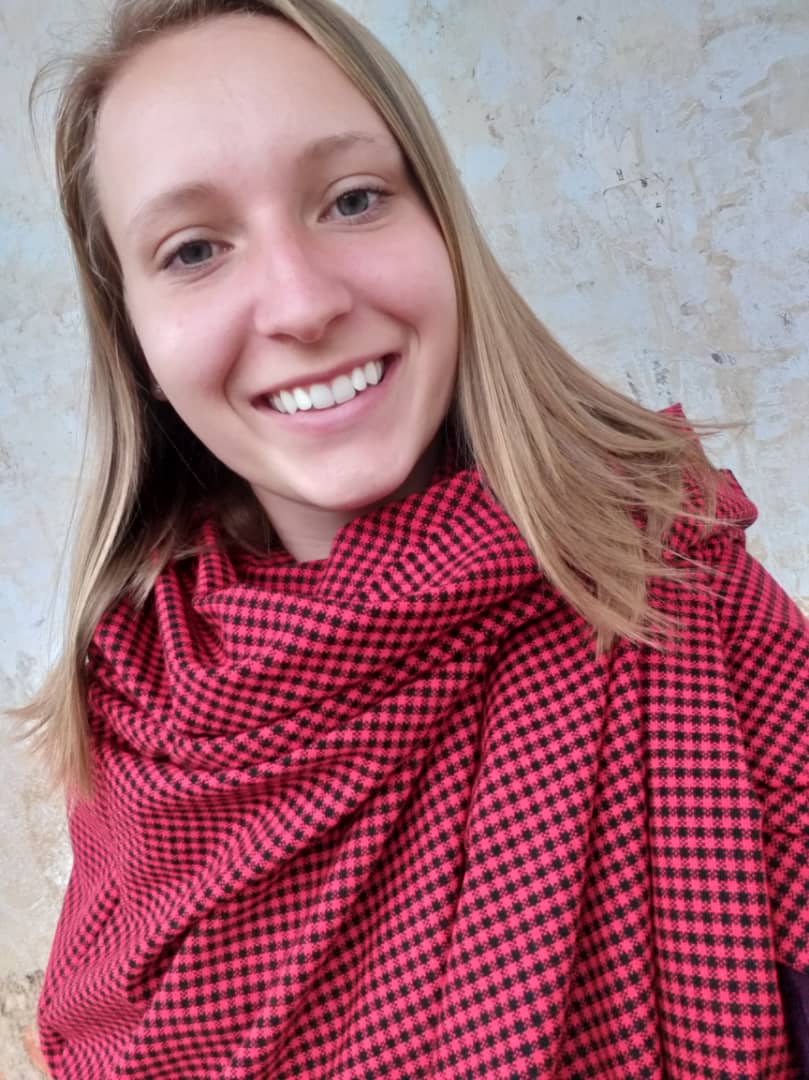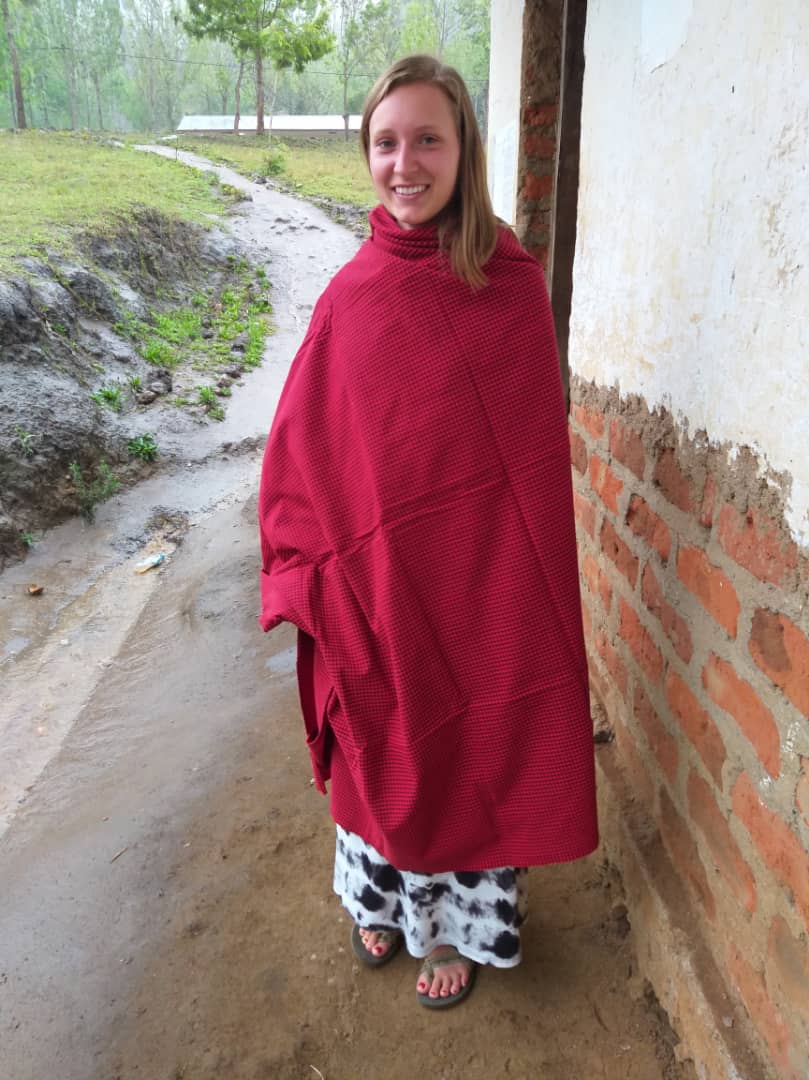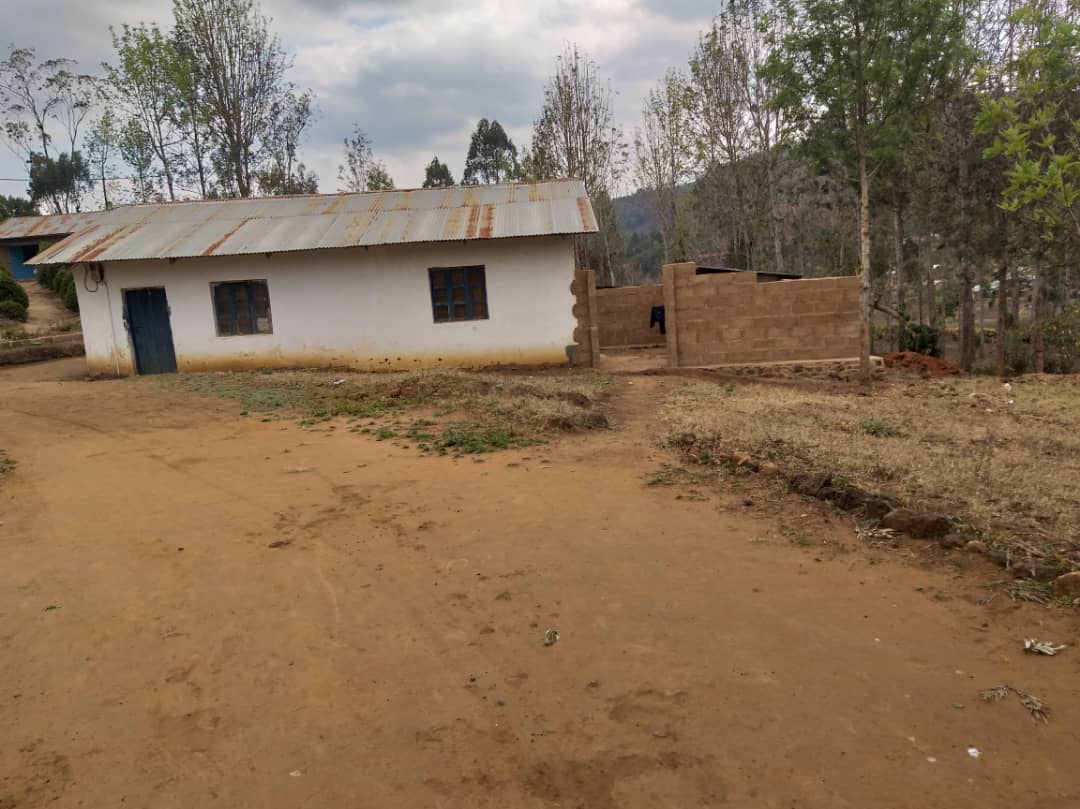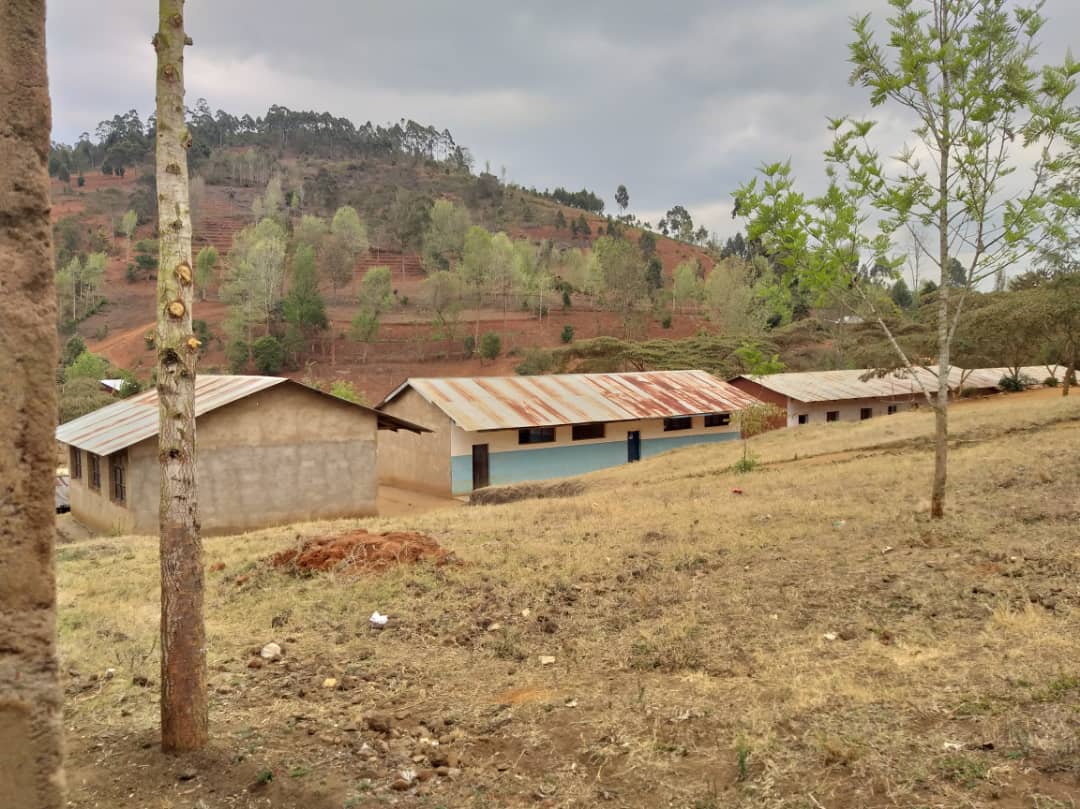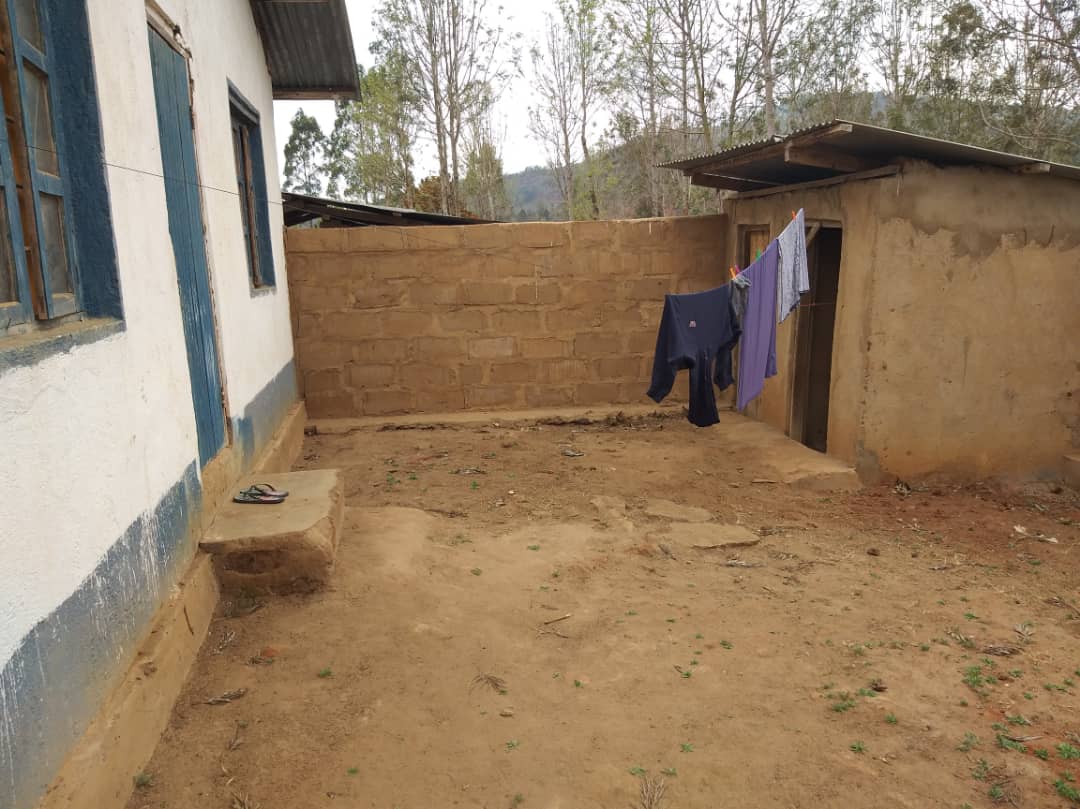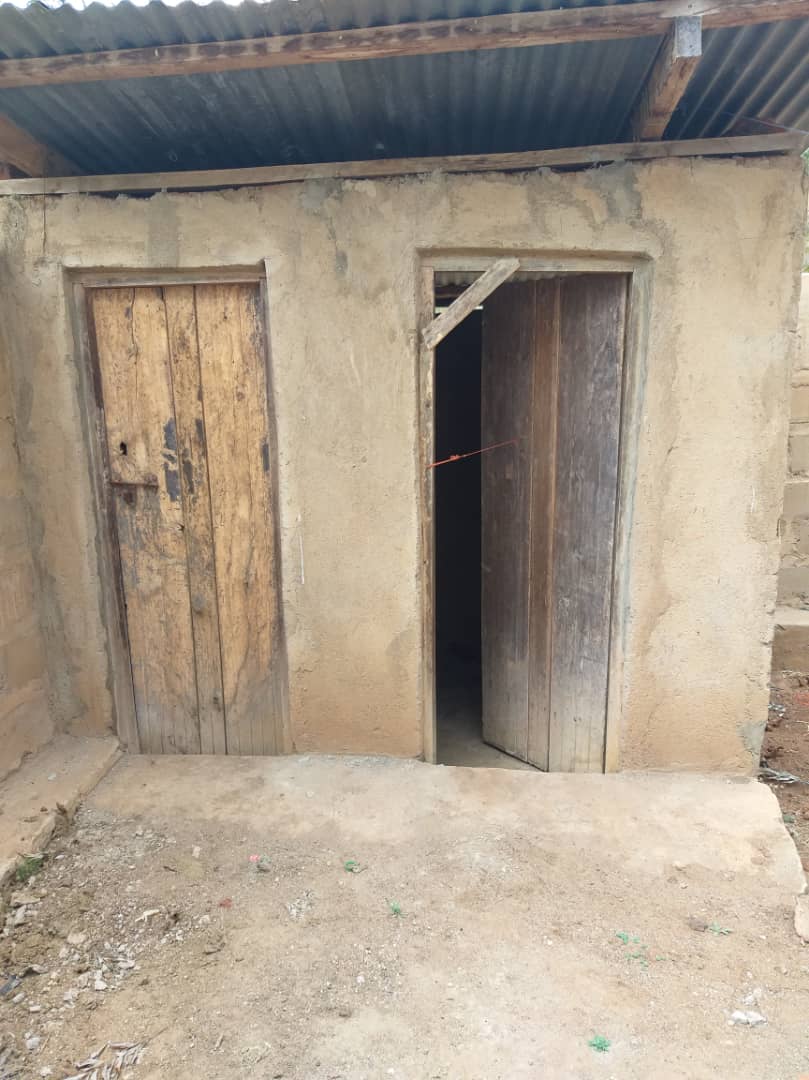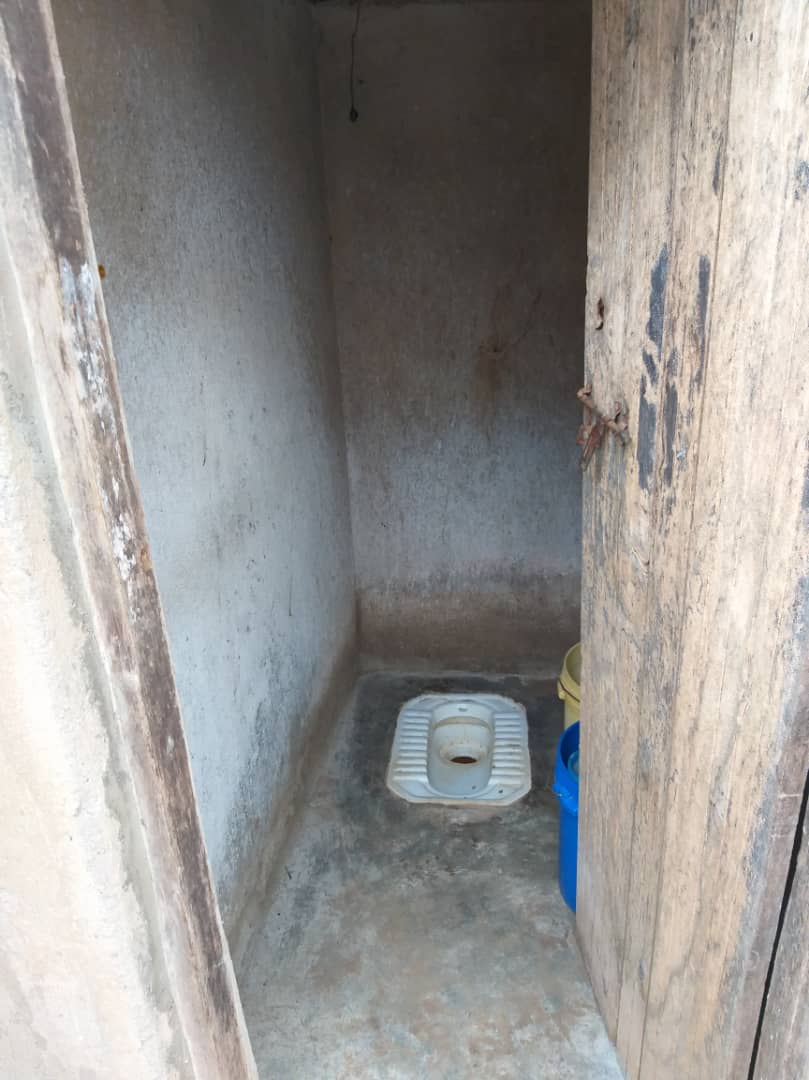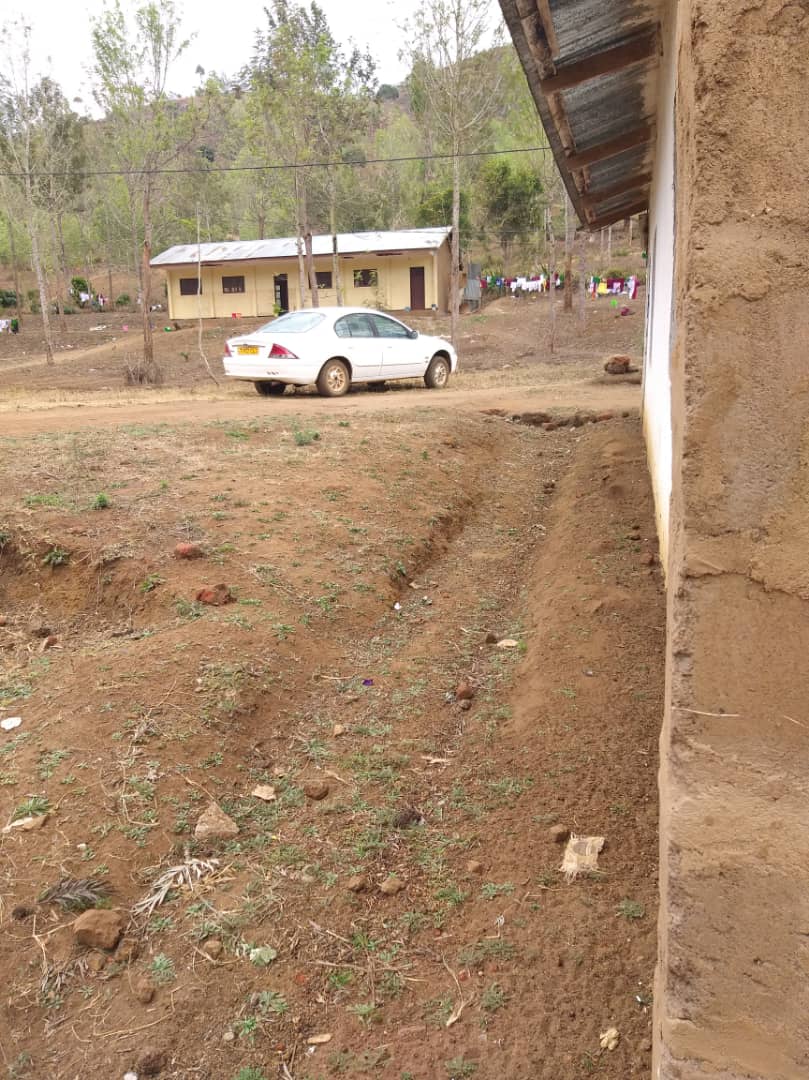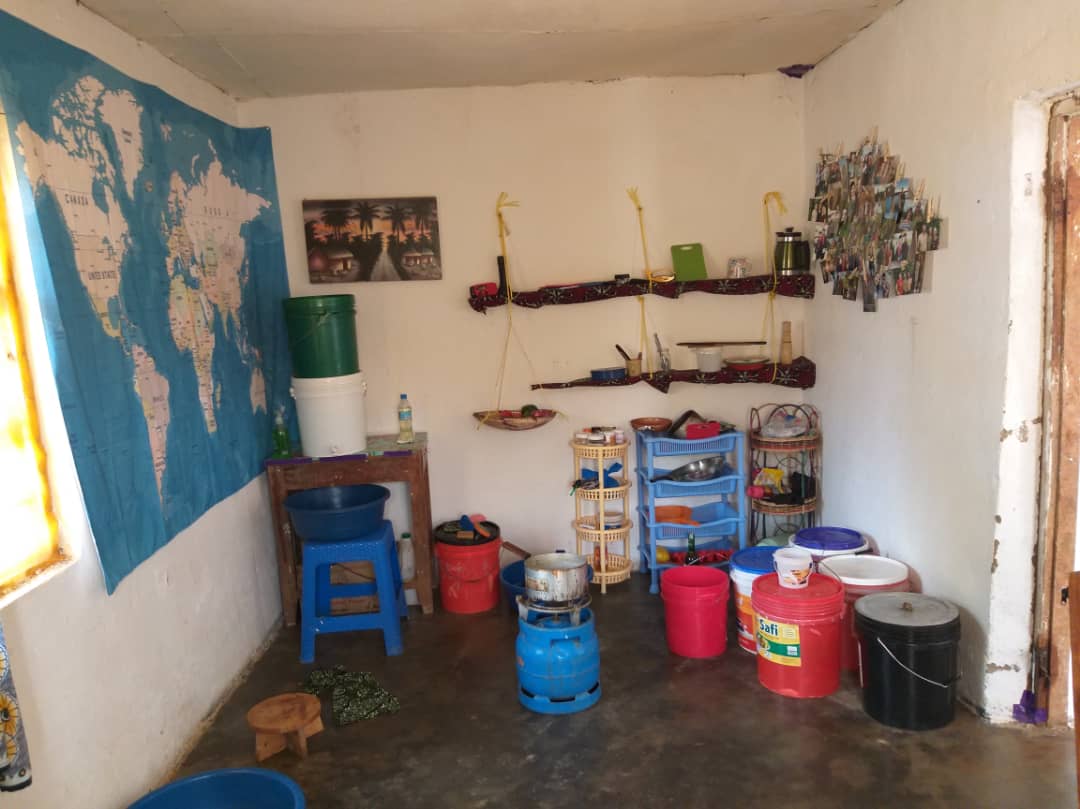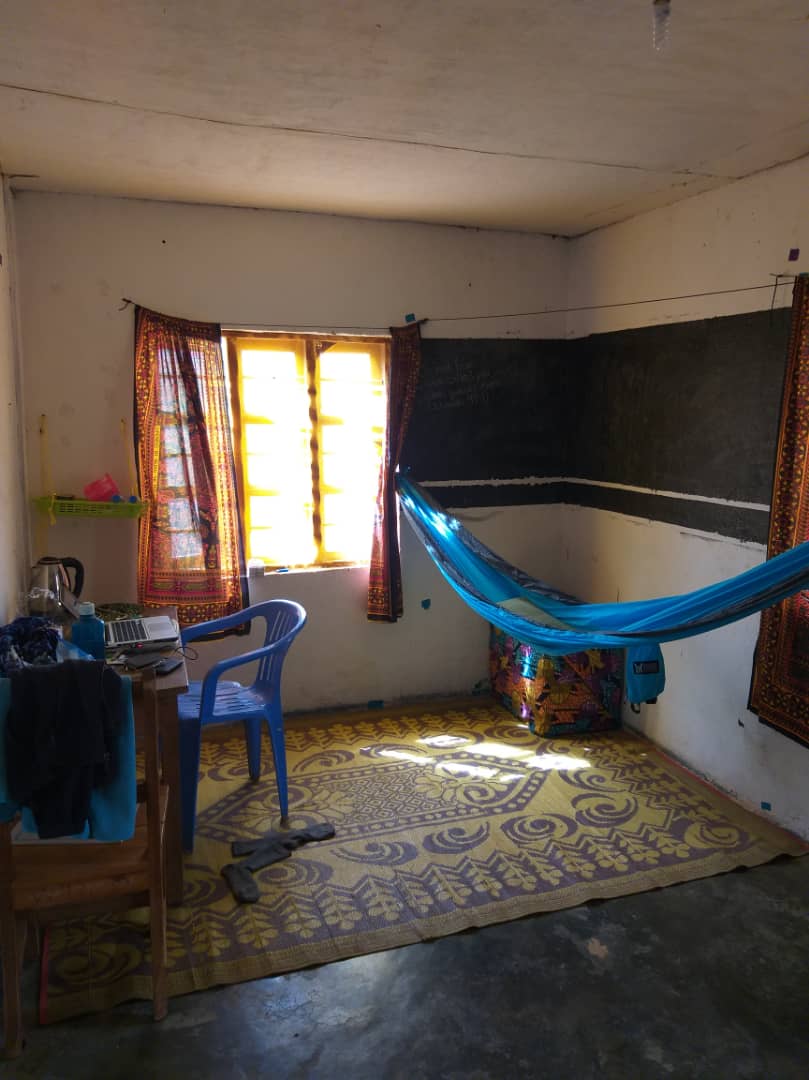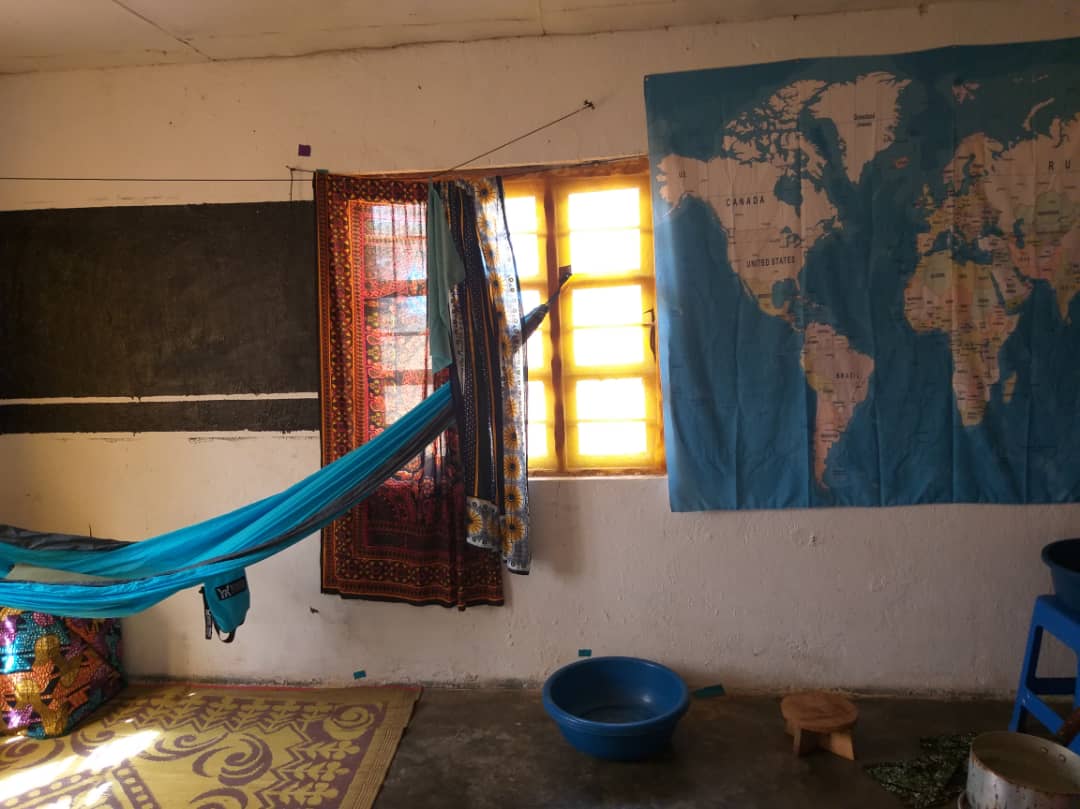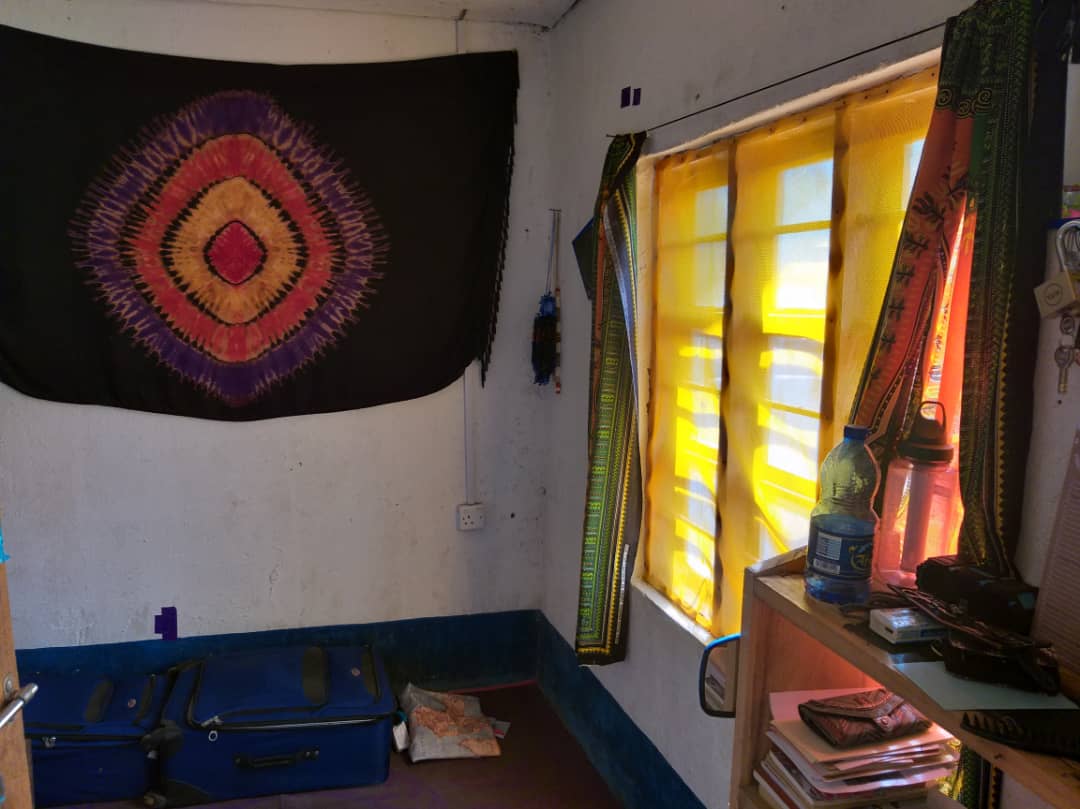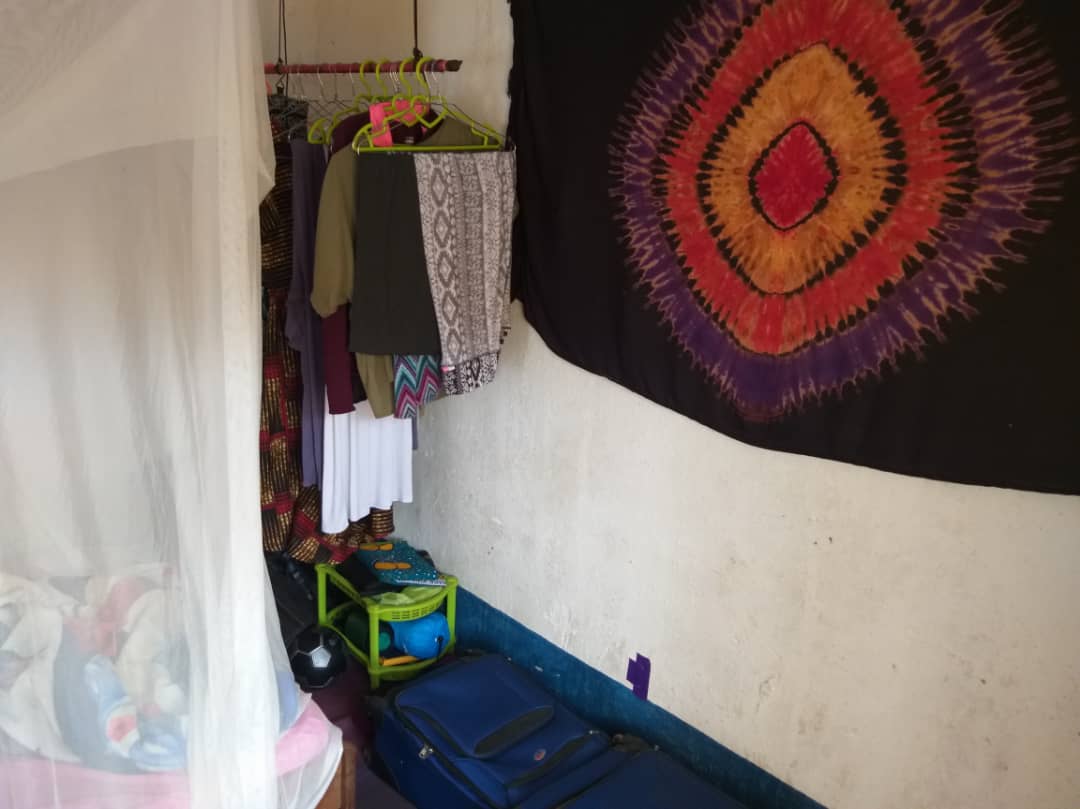Hello everyone,
I am going to apologize now for taking so long between each post but I also will not make any promises that they will increase in frequency. Pole sana (very sorry). I have been very busy getting involved at school and visiting other volunteers on weekends. I don’t even know where to start in telling you all about my past month in my new home.
I guess I will start by saying that I am honestly loving it! During the week I spend each day at school. Although my house is no less than 20 steps from the teachers’ lounge I still make a point of staying at the school from at least 8-4 each day. When I am not teaching I spend my time either in the library or the teachers lounge. During my first week at school we (myself, some other teachers and some students) cleaned and organized the library into what has now become my office. Prior to my arrival at the school, the library was being used as a storage room for the lunch foods (bags of beans, corn, ugali flour). If you are wondering what ugali is, it is a staple food in Tanzania. According to google it is described as a cornmeal porridge, however, I wouldn’t call it porridge. It is thick and you eat it with your hand. Usually you break off a piece of it, roll it into a ball in your hand, use your thumb to make a divot in it and then use it as a spoon to pick up the beans or whatever sauce is served with it. It takes skill to eat ugali because all that is done with just one hand. At my school ugali is served with beans as the students lunch on average 4 out of 5 days a week. I have had many people in Tanzania, both students and adults tell me that their favorite food is ugali, which is good being they eat it so often! Anyway, we cleaned out the library and moved a desk and some tables into it. Now I have my own work space and students can go in and use it every day for another study spot, textbooks or to look at past exams. I was also given the one and only key for it! Lots of responsibility handed to me during my first week at site.
Another responsibility I was handed was becoming the matron of the girls dormitory. My school was not originally a boarding school, however being the NECTA (big national exam) is coming up in November students have been allowed to stay at school so they have more time for studying. Because this school was not a boarding school we do not have a dormitory. Two classrooms have become the girls “dormitory” and two classrooms have become the boys “dormitory”. There are a few bunk beds in the classrooms but the other students sleep on mats on the floor. I have not been told how many girls are staying here but my rough estimate is about 20. Being I am one of two female teachers at my school, and the only female teacher who lives on the school compound, I was given the responsibility of monitoring the girls dormitory. So far my only task as the matron of the dormitory is to go every couple days and make sure they are keeping it clean and well kept. I was told that if a girl is sick I may be asked to check on her but so far that has not happened.
I have also continued to assist with FEMA Club. My “assisting” was increased to “leading” the club meetings the past two weeks. Daniel, the leader of FEMA Club had other responsibilities the past two weeks and asked me if I would be able to run FEMA. FEMA Club meets every Thursday for a two hour period. I don’t know how many students are in FEMA but the small classroom we meet in is usually packed! My guess is that there are easily over 100 students in the club. So, when asked to lead the club sessions I was a bit apprehensive but the first time Daniel sat down with me to plan it. The club met on October 10th which was the day before International Day of the Girl so of course that was the topic of the meeting. Peace Corps had sent out some interview questions that we used as an activity for the students. We wrote out the questions so that they could work in groups to answer them. The questions were:
-
What do you want to be when you grow up? How will you get there?
-
Who is a strong woman you look up to in your life?
-
How can you be a good role model to others?
-
What is your favorite subject in school and why?
-
Have you ever been told you can’t do something because you are a girl and how did that make you feel?
Here are some of their responses:
-
I want to be a doctor when I grow up. I will get there by studying hard, especially in science subjects like biology and chemistry. I would like to be a teacher. I will help teach students chemistry and geography.
-
A strong woman I look up to is Vice President Samia Suluhu Hasani.
-
To be obedient, hardworking and disciplined. I like to be a woman who is hard working, who has confidence, who likes to educate society and who has a vision. By working hard and being obedient.
-
I like Kiswahili because it is the national language and it is easy to understand. I want to be a teacher of literature in our country. I like to study biology because it can help me to become a doctor, nurse or teacher of biology.
-
Yes, it made me feel bad because it breaks down the value of girls.
This week when FEMA Club met I was on my own to prepare and run the meeting. I used one of the activities we had done during Peace Corps training. It was an activity to discuss gender roles and differences in daily schedules. I separated the students into groups of boys and groups of girls. I gave each group a paper that had “shughuli za kila siku” which directly translates to “schedule of every day.” Underneath that the paper was split into two columns. On one side I wrote, “kwa wavulana” and the other side “kwa wasichana” which translates to “for boys” and “for girls.” I then asked them to write their own daily schedule and then write what they think the other gender’s daily schedule is. As expected, they easily wrote their own schedule but struggled with the schedule of the other gender. When they had finished it was apparent that girls have many more tasks and responsibilities than men do. In many families in Tanzania it is still common practice that women do all the cooking and cleaning as well as help on the farm, fetch water and take care of children. This was evident even in the students’ daily schedules. As a group we then discussed the schedules, differences between them, and why those differences exist to bring awareness to the differences in gender roles.
I have only actually taught class a couple times so far. Peace Corps gives us two weeks to get settled into our site before starting teaching and then there was testing, a holiday and other random interruptions that came up but I am starting to get into the swing of things. The first thing I have noticed since starting to teach is that this school does not have as good of English as the school where I did my internship teaching during training. This is going to be a big challenge for me in teaching. I will hopefully increase my Swahili proficiency in order to supplement my lessons so that the students understand. There is also a big difference between individual students’ proficiency. Some students I can carry out a basic conversation with in English and others do not understand much of anything in English. I hope that throughout my time here the students will be able to help me to continue learning Swahili and I will be able to help my students with learning English.
I realize now that when I wrote my post about site placement there are a few things I left out. One being the weather at my site and the other being pictures! First, I failed to mention that living in the mountains means living at a higher elevation…which also means it is colder! Now, I went to Tanzania thinking I would be living in a country near the equator and that it would always be hot. Well.. That was me being ignorant and not having a good understanding of just how many different climates Tanzania has. Yes, there are other volunteers in the country who are living in areas where it is always hot. But there are also other places that get cold. I have not spent one day at site yet without needing long sleeves, whether a jacket, sweater, sweatshirt, something to keep warm. Occasionally in the afternoons when the sun is out I can wear short sleeves but usually it is too cold for that. Also, along with a jacket, most days I wear pants or leggings under my skirt as an extra layer of warmth. The only shoes I brought to country are sandals and hiking boots so most days I just live with cold feet. One perk of the area I live is the use of shuka’s. A shuka is a traditional cloth of the Maasai tribe and is also called the African blanket. It is a fabric that is durable, strong and thick and is traditionally worn wrapped around the body. Now, many people utilize shuka’s and wear them as scarves or blankets wrapped around themselves to keep warm. Because they are so common in Tanzania it is completely acceptable for me to wear a shuka wrapped around me like a blanket to school, to class and when I’m teaching.
Besides the cold another point I wanted to share about the weather is the rain! Right now we are in the short rainy season, which is kind of concerning because it has rained every single day I have been here. Sometimes it rains only in the morning or only at night but I am pretty sure there has not been a day yet without at least some rain. Recently we have had so much rain that the roads were unsafe to travel on and the electricity went out for two days straight. A positive side to the rain is a lot of water for drinking, cooking and washing. Normally the students are required to bring teachers water every day but with all the rain all I’ve had to do is set my buckets outside!
I mentioned that students are required to bring teachers water so I wanted to touch on that point briefly. In Tanzania students have many responsibilities beyond just their studies. Students fetch water for the school, teachers and the school cook from where ever the water source is. At my school we have a bomba (a water tap) on the school compound so they do not have to carry it far, however at some schools students have to go much further to get water. Students also are responsible for the school environment and cleanliness of the classrooms. Every morning students are at school by 6:30 to do school cleanliness. They make sure all the grass around the school compound is cut, weeds are pulled, classrooms are swept and mopped and all the pathways are cleared of rocks and debris. Different students are responsible for different areas, although I still haven’t figured out exactly how that works. I just know that it is the same five girls who always clean the teachers’ lounge and it is the same few students who always clean the library. The school also has a kitchen, not what you would call a kitchen in the US but a kitchen none the less. It is an outdoor kitchen and all meals are cooked by firewood. Once a week or so students are required to bring sticks for making lunch (when I say sticks I mean one or two big branches that are taller than they are). Another task I witnessed today was students putting up a gutter on the classroom. I am no longer surprised at the different tasks and responsibilities put on students. There is also a school shamba (farm). There are occasionally days or afternoons where classes are cancelled for “shamba day” in which all the students are out in the field planting or harvesting crops. This has not happened yet since I have been here but I know it is a common practice throughout Tanzania. The crops grown at school are used either for students lunches or are sold to provide the school with money to purchase food for lunches. I’m sure there are many other responsibilities the students have that I am not thinking of at the moment but this gives you all an idea of the many responsibilities students have outside of the classroom. What I listed are just their responsibilities at school, many students go home and have just as many, if not more, responsibilities at home. Most of these responsibilities are unfortunately necessary for the school to function. There is not enough money for the school to hire janitors, maintenance people or someone to bring firewood and water for cooking, yet those tasks need to be done. This is one of the many challenges in the Tanzanian school system. Students have so many responsibilities that there is not much time for studying or if there is time they are so tired that it doesn’t do much good. Thinking back to my high school education I could not imagine having all the responsibilities that my students here have and still finding time to study and do well in school. I definitely have a lot of respect and empathy for my students who are working so hard for their education despite all the challenges they face.
Finally time for some pictures!
